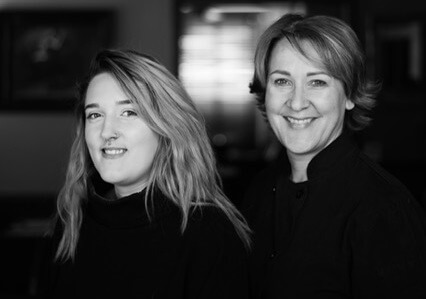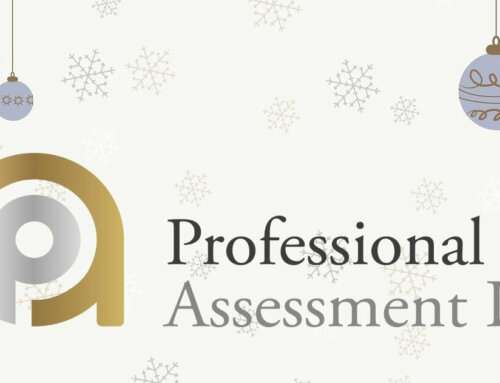The family-run Terrace Tapas & Wine Bar in Ilfracombe, Devon, doesn’t just win national awards for its authentic Spanish fare, but also its staff.
The 2019 and 2020 Good Food Award-winning eatery’s latest accolade is for its 21-year-old apprentice Taylor Phelps. She has achieved a distinction for her Hospitality Supervisor (Level 3) apprenticeship, specialising in food and beverage.
It is a triumph for 21-year-old Taylor, her employers Dawn Mullen and Clive Chilcott, and apprenticeship end-point assessment provider, Professional Assessment Ltd (PAL).
“Many congratulations to Taylor on an excellent result,” says PAL Managing Director, Linda Martin. “Apprentices need to demonstrate a very high level of knowledge, skills and behaviours to achieve a distinction. The End-Point
Assessment (EPA) result proves that Taylor has grasped the opportunity to showcase her talents, and demonstrate her quality to her current and potential future employers.
“She has been robustly and rigorously tested by Lorraine Pope, one of our highly experienced, independent team of end-point assessors. We are objective and impartial without ever being adversarial. Our end-point assessors are like ‘the driving-test examiner’, but with a difference. We go out of our way to understand the apprentice’s needs and requirements fully, whilst meeting the requirements of the assessment plan.”
Why did Taylor decide to do an apprenticeship?
The hospitality industry traditionally has been a major player in the North Devon coastal economy. This led Taylor to the profession at a young age. She tried her hand at everything from waitressing to being a kitchen porter. “I decided the industry wouldn’t be a bad long-term option,” she explains.
When Taylor was 17, she went into what she thought would prove a long-term job. The problem was that nobody would give her the option of having a paper qualification to back up her skills, or indeed give her full-on training, save for “spouting a few facts and a few things that could help”.
Then she joined The Terrace Tapas & Wine Bar. The contrast was startling because Dawn and Clive gave her a lot of responsibility early on. “I really liked this as it motivated me,” she says. “I was very grateful because I could tell Dawn and Clive trusted me. They brought up the idea of apprenticeships and I thought why not? I might know a few things now but in the end I am going to learn a whole lot more. It is going to help me progress in my career. It can give me the confidence to help other people. Having the qualification to back up my knowledge and skills will make all the difference.”
“And you worked for it”, interjects Dawn.
“And I got what I wanted out of it”, adds Taylor.
Was college ever an option for obtaining the apprenticeship?
Taylor did go to college but quickly realised it was not for her. “I have quite bad anxiety and a few other issues, making it hard to sit in a classroom and be expected to eat up information in a very small space of time,” she explains. “I needed something more practical and flexible where I could take my own time to do it. Apprenticeships do have a time limit, but it wasn’t like anyone was on my back on a certain time at a certain date, apart of course from the assessments. Undoubtedly, college is good for a few people, but not for me.”
How did Taylor prepare herself for what she knew was coming at the end of her apprenticeship?
“At the very beginning,” says Taylor, “I met two ladies who were from training provider, HIT Training, and they explained the whole apprenticeship to me and what would be involved. A large part of the meeting was about end-point assessment, and I got told the main things to focus on from a long-term point of view.”
What did the apprenticeship and the EPA involve for Taylor?
The four core areas of the Hospitality Supervisor standard are business, people, customers, and leadership. An apprentice will have a specialism, which for Taylor was food and beverage supervisor. The main elements of Taylor’s EPA, provided by PAL, were
• The multiple-choice questions (MCQ): a scenario-based test, designed to assess an apprentice’s knowledge and skills against the key elements of the apprenticeship standard. Some questions required Taylor to consider a course of action or solution to a situation or problem, based on a ‘real-life’ workplace activity. All questions required her to demonstrate reasoning and joined-up thinking.
• The observation: five nights prior to Christmas Day, PAL’s end-point assessor Lorraine Pope visited The Terrace Tapas & Wine Bar to observe Taylor in action and assess how she performed during supervision of evening restaurant and bar service.
• The Business Project and Presentation: this is designed to give apprentices an opportunity to demonstrate their wider understanding of the business they are working in and particularly to identify and ‘think through’ how an improvement could be made to the way it operates. For this standard, Taylor’s completed project had to be between 2,000 and 5,000 words and had to be presented in a 30-minute session (including Q&A section) to Lorraine Pope.
• The Professional Discussion: a 90-minute structured discussion between Taylor and Lorraine, relating to
1. The period of learning, development, and continuous assessment
2. Coverage of the standard (including areas not previously assessed by the MCQ test, observation, or business project)
3. Personal development and reflection.
The business project provided Taylor with perhaps her biggest challenge, namely writing. “I can talk for England, but I go off at a tangent for some reason when I try to write,” she explains. “I haven’t been in school for a few years and it is not my daily task to do essays. It felt like I was in an English exam again!
“To help me, I used a mix of outside research resources, the internet, and books for writing the business project. I even looked at GCSE essay tips. Also, I looked at things like business project structures on the internet and hoped all these factors would ensure the business project didn’t ramble on too much.”
Her distinction shows she certainly succeeded in her objective!
Given all the elements of the PAL EPA, what did Taylor like most about it?
“The end!” she said, laughing. “It was kind of scary coming up to it and nervewracking. I looked forward to the business project because it was what I wanted to write, but I really didn’t look forward to everything else.”
Indeed, when it came to the observation, not everything went right on the night. How did Taylor feel, knowing her end-point assessor was watching and observing her dealing with the problems encountered that evening?
“At the very beginning, I did get a bit worried. It was a busy night, but not massively so. There were gaps and moments – I was doing my best at the time but I haven’t got eight arms to do everything at once!
“It was one of those nights!” interjects Dawn.
“Glasses piled up so I had to wash them in the sink,” says Taylor, “and take them downstairs. Dawn said to me, Lorraine will be looking to see how you deal with it. I got upstairs, put myself back in the zone, not worrying where Lorraine was looking or how I have got to look when she’s looking at me. I needed to forget she was there.”
Commenting on the observation process from the PAL end-point assessor’s point of view, Lorraine says: “With every observation, I always say if I am in the way, let me know. I will go over occasionally and say what happened there as I only got part of the story. I just want clarification. I very often see things that happen that the apprentices don’t feel are consequential.”
A good working relationship and understanding needs to be built between all the parties involved in delivering an effective apprenticeship. This certainly happened in Taylor’s case.
“The handover from the training provider HIT Training was very robust,” explains Lorraine, “and they made me aware of Taylor’s apprehension going into end-point assessment, how worried she was about meeting somebody for the first time. That is one of the hardest things for any apprentice – that unknown person coming in. For anybody of a nervous disposition, it is quite a big fear factor that just adds to it.
“I was just me really, ensuring she was comfortable, she knew who I was, and what was going to happen. I also ensured her managers were aware of what was going to happen, though I had already been in communication with them a couple of times in the planning meeting. It is always good to go back through it again to check everyone is on the same page with things like checking timings, and ensuring everybody is as happy as they can be about the process. It is also important to offer help, and get everybody’s input.
“I don’t want people coming into end-point assessment thinking I am trying to fail them. We don’t want that. We want them to succeed and do well. I always try to find something to talk about to make the apprentice feel ‘I am just a person’.”
The importance of caring for the apprentice’s individual needs was well illustrated by Lorraine conducting the professional discussion on-site, because Taylor preferred to do this face-to-face, rather than via a webinar.
“I really appreciated Lorraine coming to see me,” says Taylor. “On the day of the professional discussion, Lorraine’s style of inquiry and the way the discussion was formatted let me say what I wanted and needed to say. She kept the discussion flowing.
“This was good. If I take pauses, I tend to lose my place so I was really grateful to Lorraine.”
What top tips would Taylor give other hospitality supervisor apprentices?
“Have a rough business project idea in mind at an early stage in the apprenticeship, so you can research and agree with your employer it is a project that is viable. I found the business project to be the fun side of the apprenticeship. You can develop and adapt the project, developing your ideas and recommendations as you go along.
“Don’t panic too much when you get to the EPA, and sleep well during the final week before your final examinations. Stay relaxed.”
Dawn Mullen was equally impressed by the PAL approach to the end-point assessment process. She says PAL were wonderfully supportive.
“They don’t want you to fail. They want you to succeed. They will bring out the best in you. They have been amazing.”
Taylor adds: “I really appreciate that Lorraine understood that we were all pretty tired when she visited the restaurant for my assessment just before Christmas. I have seen other people having a tough time with apprenticeships so I really appreciate Lorraine’s sensitivity.
“I split the four assessments into two stages. I did the multiple-choice test and observation five days before Christmas, and Lorraine agreed to do the professional discussion and business project in January when things were much quieter.”
How much was Dawn involved in preparing Taylor for the PAL end-point assessment?
“Taylor did most of it on her own,” she says. “If she needed us, we were here, but she is quite a determined young lady, wanting to achieve this by herself. We made sure Taylor had plenty of time to do everything she needed.”
What did Dawn like about the apprenticeship and the PAL approach to the end-point assessment process, given she had had a very long career in further education?
“I left as these new standards were coming in, so this whole process has been very different,” explains Dawn. “In my time, an apprentice was simply observed, assessed, and then an internal verifier came along and checked. And that was that. Now you have got something to aim for, you have got to pass and you can get a distinction. Before if you passed, everyone just got a pass. Taylor has been rewarded for the high amount she did, plus she has worked for it. She has been through all the end-point assessment methods. She has been checked in lots of different ways. She has come up with her little flag waving which is brilliant. I just think it is great! I am super impressed!”
What impact has Taylor’s apprenticeship had on Dawn and Clive’s business?
“I have already seen an impact on the business,” says Dawn. “I have noticed a change in Taylor in the way she deals with staff. Her confidence is higher. The way she deals with people also is more confident and that has a natural impact on the business. I have seen a difference and it is brilliant. She is making many more informed decisions without asking someone for advice.”
What is the benefit of employing an apprentice?
“With an apprenticeship,” says Dawn, “you are super involved as an employer, planning the way forward. You are building this extra relationship. It has been brilliant for us and brilliant for the business. Watching Taylor blossom has been immense.”
What advice would you give other hospitality employers?
“I would say look carefully at who your training provider and end-point assessment organisation are and specifically how organised they are with the whole process,” recommends Dawn. “The quality of the information you are given upfront is also important, as are time scales and deadlines. All these were met with Taylor.
“I have not been let down on one single point. I have been impressed from start to finish.”







